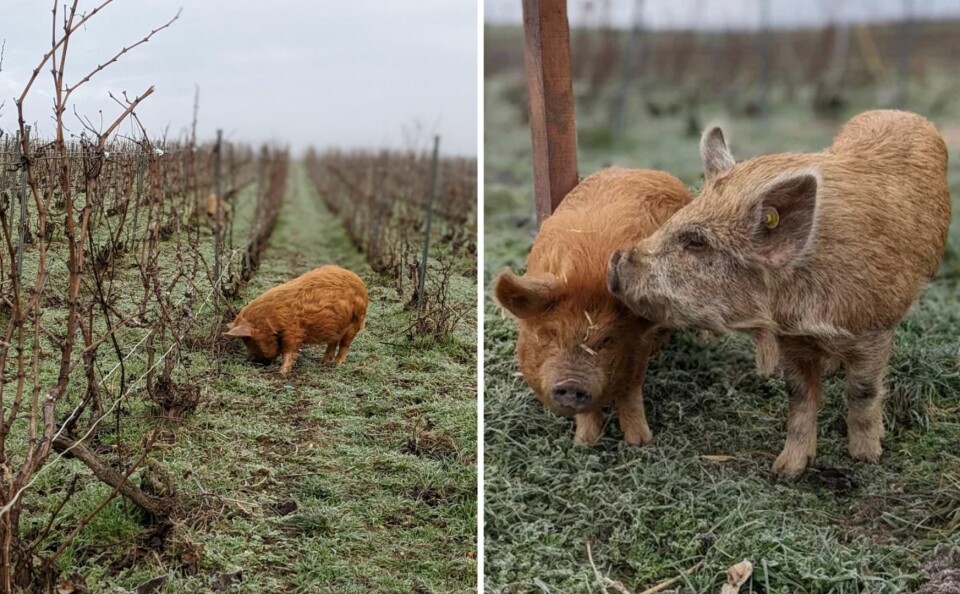-
Know your cheeses and their seasons: which to eat in France in February
Cow’s milk cheeses dominate as winter comes to an end
-
Films and series to watch in February to improve your French
Every month we outline good film and TV series to improve your language
-
Duck Cold! Four French phrases to use when it is freezing outside
France's current cold spell is set to continue for the next few days - we remind you of French expressions to use to describe the drop in temperature
Mini-pig breed’s weak neck is superpower against French vineyard weeds
A champagne producer’s organic experiment with dwarf pigs proves better than sheep or geese

A New Zealand breed of pig has been successfully put to work on a champagne vineyard to keep weeds and grass down.
The dwarf pigs, called Kunekune, have a light brown coat, relatively large heads and weak neck muscles.
Jean-Etienne Bonnaire, of Bonnaire Champagne, who has been experimenting with two pigs since December, said: “Having the weak neck is important because it stops them looking up and seeing the grape stems and thinking they might be tasty to eat.
“What they are really good at is turning over the soil and going for the roots of weeds and grass, the parts that are hard to get at any other way.”
He has been so impressed that he has bought another six pigs to go with the first two.
Read more: Champagne bottles in France may soon be wrapped in eco-friendly paper
Better than sheep or geese
Kunekune pigs were first trialled on vineyards in Bordeaux after unsuccessful attempts to use sheep.
Grape growers found that sheep were good for keeping grass down, but sometimes left weeds and never pulled up roots.
Geese have also been used to keep grass short, but have the bad habit of nibbling the vines as well.
They take pleasure in digging up roots
Mr Bonnaire said he will move his pigs to a separate field once buds on the vines start to grow, to prevent damage, but for winter work they have proved ideal.
“Champagne soil is chalky clay and if you have tractors going up and down, especially when it is wet, it compacts.
“This is not good for the soil microbes or for the vines,” he explained.
“I was a bit sceptical at first but when the pigs got going, I was convinced. They just dug down after the roots and seemed to take great pleasure when they got one up.”
Pigs moved around after a week of weeding
Bonnaire Champagne is in the process of securing bio organic certification, something Mr Bonnaire said has made him keen to try new ways of doing things.
Read more: What is the future of organic wine in France and do consumers care?
He envisages further benefits of using pigs, including cutting the risk of vine diseases because the animals eat the fallen leaves, so reducing the number of mildew pathogens surviving over winter.
“They also leave a bit of dung, which helps to nourish the soil,” he said.
Electric fences keep the pigs in the areas that need working on, and it usually takes just over a week before they are moved on to a new parcel in the vineyard.
Related articles
Remote French village reinvigorated by women farmers and Basque pigs
Calf born with six feet undergoes successful op in southern France
Urban myth or true: Is it illegal to call a pig Napoleon in France?
























